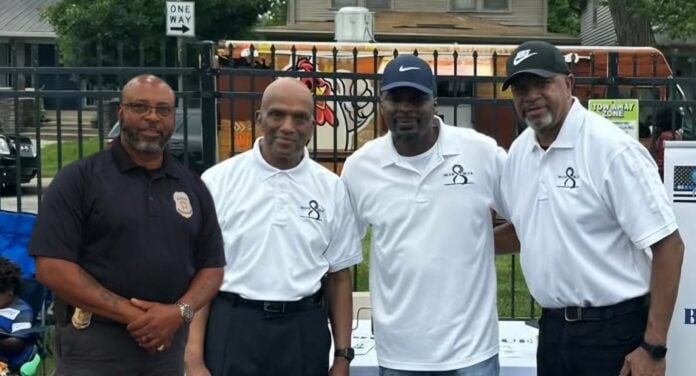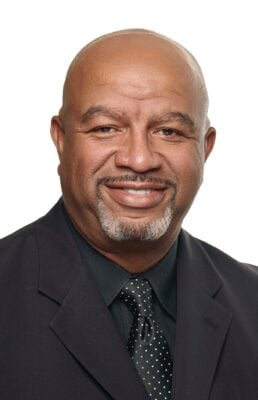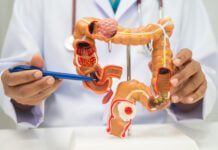
James Smith is a man of service.
A U.S. Navy veteran, former NFL team security director and longtime law enforcement officer, he’s spent his life protecting others. But in 2019, he faced a battle that he never saw coming: Stage II prostate cancer.
“I was always active; working out, mentoring youth, serving at church,” Smith said. “I never thought cancer would affect me.”
It started with a routine physical in 2018. His prostate-specific antigen levels had risen from 0.0 to 2.5. A year later, they spiked to 8.9. A biopsy confirmed the diagnosis of prostate cancer.

“When I got the call, it hit me like a ton of bricks,” he said. “Fear, rage, then calm. My faith carried me.”
Support came from his pastor and his uncle Mike, a fellow survivor. But finding a space that spoke to him as a Black man was difficult.
“I didn’t fit in. No one was checking that box for me,” Smith said. “Our culture doesn’t always allow for vulnerability. We don’t talk about these things.”
That silence can be deadly. According to the American Cancer Society “Cancer Statistics for African American and Black People, 2025,” Black men have a 67% higher prostate cancer incidence rate compared to White men and are more than twice as likely to die from the disease. The reasons are complex, ranging from genetics to disparities in access to care. But one thing is clear, early detection saves lives.
“Screenings are uncomfortable for a moment, but they give you a lifetime of comfort,” Smith said. “If I hadn’t been screened, I wouldn’t be here.”
Now cancer-free, Smith has turned his experience into advocacy. He co-founded the “Blue vs. Blue Prostate Cancer Awareness Organization” with fellow officer Deon Harris, who also battled the disease. Their mission is to support first responders and Black men navigating prostate cancer.
“Deon’s story was different, but the struggle was the same,” Smith said. “Imagine being on patrol, worried your diaper might leak. Or not drinking water on a hot day because you can’t risk needing a bathroom. Supervisors aren’t trained for that. We needed a space where people understood.”
Smith uses his platform as a police officer to start conversations — especially with other Black men.
“We’re out here saving lives, but we don’t think about our own,” he said. “My doctor had to rip the ‘S’ off my chest and show me I was human.”
Through his personal journey with cancer, he came to learn that prostate cancer ran in his family. Both his grandfather and father had it, but no one talked about it.
“I didn’t know I needed to start screening early,” he said. “That silence almost cost me my life.”
Now, he’s breaking that cycle. His younger brother got screened early and was also diagnosed, this time at an early stage.
“He’s cancer-free now because he had the information necessary to be proactive about his health,” Smith said. “An informed man makes a better decision.”
Smith’s message is simple but urgent: “Start the conversation. Talk about it like we talk about sports. Early detection is key.”
While Smith’s story centers on prostate cancer, his message applies to all regular cancer screening tests, including colorectal, breast, cervical and lung. The American Cancer Society urges everyone to talk to a doctor about which tests are right for them based on age, family history and other risk factors.
For more information on cancer screening, visit cancer.org/getscreened. You can also take the free American Cancer Society CancerRisk360 assessment (acscancerrisk360.cancer.org) to learn more about what you can do to improve your health and lower your cancer risk.



